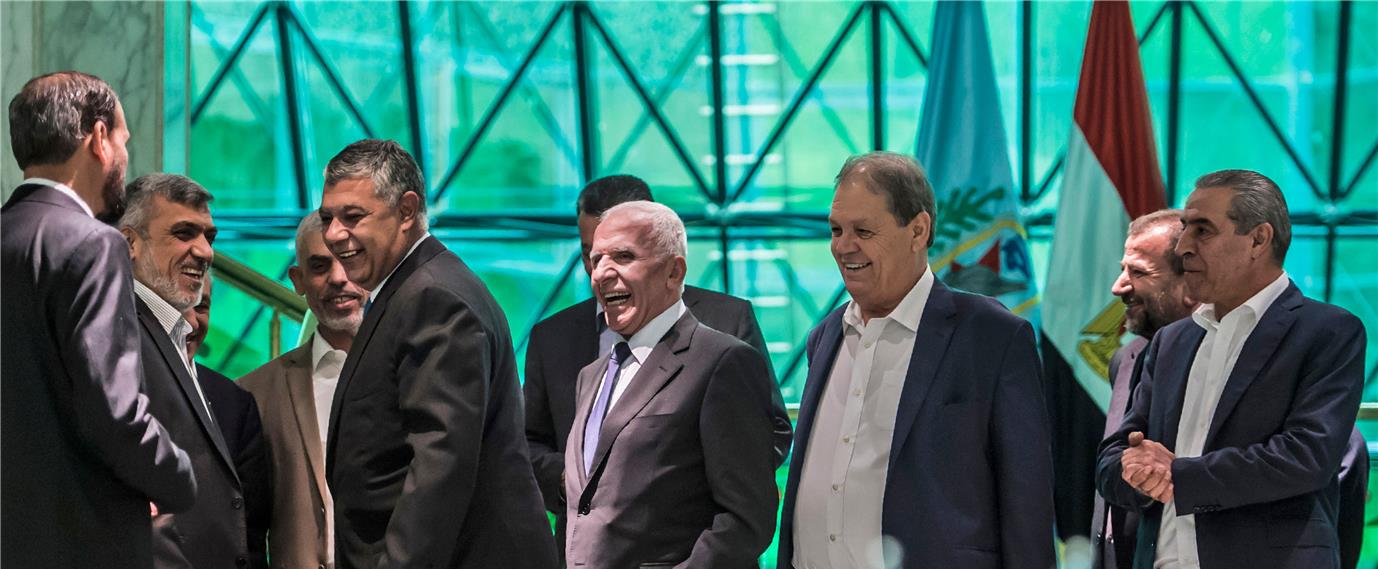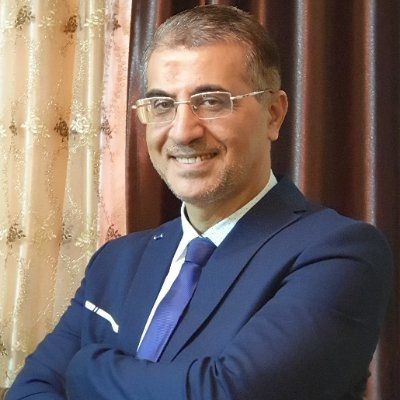فجأة، تغيرت المصطلحات السياسية والإعلامية وتبدلت التوصيفات. ظهرت شخصيات كان من المحظور ظهورها على قنوات فضائية بعينها بحكم السياسة، وتعالت الأصوات المطالبة بتهيئة الأجواء لإنجاز اتفاق المصالحة السياسية والمجتمعية الفلسطينية. فهل تغيرت قواعد اللعبة الإعلامية تبعا للسياسة أم أنه تغير مؤقت مرهون بالحالة السياسية؟ وكيف يمكن حماية وضبط أخلاقيات الممارسة المهنية؟
المتابع للشأن الفلسطيني وتحديدا لوسائل الإعلام التابعة والمحسوبة على حركتي "فتح" و"حماس" وهما قطبا الانقسام السياسي الممتد منذ نحو 11 سنة، يجد أنه كان لتلك الوسائل دور مؤثر في تعميق الانقسام وتجذره بدلا من العمل على محاربته وإنهائه، أو على الأقل عدم تأجيجه لصالح أحد الطرفين، في وقت يدفع فيه الشعب الفلسطيني كاملا ثمن استمرار هذا الانقسام.
الواقع السياسي الفلسطيني الذي يجر الإعلام بأذيال انقسامه يشكل خطرا فادحا ليس على صناعة الإعلام بل على أخلاقياته وضوابطه المهنية، التي تتعرض إلى انتهاكات صارخة بأشكال متباينة، كان آخرها إقرار السلطة الفلسطينية لقانون الجرائم الإلكترونية الذي يستبيح اعتقال الصحفيين ومطاردتهم من أوسع الأبواب.
وعلى مدار عدة سنوات متواصلة،أدى التراشق الإعلامي بين الفصيلين الأكبر على الساحة الفلسطينية إلى تعزيز أجواء التوتر وبث التحريض والتشجيع على الكراهية وقطع الطريق على أية محاولات إصلاحية أو توافقية، مما أثر سلباً على الأمن المجتمعي وعلى حرية التعبير التي أصبحت الضحية الأكبر.
ورغم أن الإعلام الفلسطيني أبلى بلاء حسناً في مواجهة الاحتلال الإسرائيلي وفضح جرائمه على كل المستويات، وتصدى بكل مهنية للعدوان الحربي على غزة والحصار الممتد؛ إلا أن هذا الإعلام لم يستطع تحقيق نفس النجاح والأداء المهني على الصعيد الداخلي المتعلق بالتصدي للانقسام وتداعياته المختلفة، وهو ما أدخله في دوامة شديدة باستثناء بعض الوسائل الإعلامية التي استطاعت التخلص من ربقة الخضوع للخطاب السياسي الفئوي.
خروجاً عن سكة "الضوابط"
دوامة الانقسام السياسي شكلت خطرا داهما على الحريات الإعلامية وعلى رأسها حرية الرأي والتعبير، وأثرت على التزام الصحفيين ومؤسساتهم بضوابط ومعايير وأخلاقيات العمل الإعلامي مما زاد من حدة الانتهاكات لها بأشكال متباينة.
وعندما نذكر الإعلام الحزبي بالنقد، فلا نعني بذلك أنه "وصمة عار" أو نرفض وجوده، لأنه إعلام موجود في العالم كله، لكنه مطالب بعدم الاستخفاف بعقول الناس وعدم تجاوز أخلاقيات المهنة وعدم إقصاء الآخرين.
ومن أبرز معالم ومحددات الخطاب الإعلامي الفلسطيني غير المنضبط مهنياً وأخلاقياً -خاصة ما يتعلق بالإعلام الحزبي-:
1.تعزيزالخطاب التحريضي المتبادل وهو ما تكشف عنه بوضوح الأخبار والصور والرسائل الإعلامية التي تُنتج يوميا.
2. التلاعب بالألفاظ والمصطلحات والمفاهيم ووضعها في غير إطارها المهني.
3. التوظيف السياسي للأحداث بصورة واضحة جدا، وبما يتوافق مع الإطار الحزبي لكل وسيلة من تلك الوسائل.
4. الانتقائية في نشر الأخبار أو الصور أو حتى اختيار المتحدثين أمام وسائل الإعلام.
5.الاعتماد على مصادر مجهولة الهوية لتمرير بعض المعلومات والأخبار.
6. الاعتماد على الإثارة في طرح القضايا وتقديم الأخبار.
7. اعتماد أسلوب "التصميم الناقص" أي اجتزاء المعلومات والتصريحات المنقولة لدى تناول بعض القضايا الهامة، من أجل استثارة عواطف الجمهور ومحاولة كسب الرأي العام.
8. صناعة وتوجيه بعض من يطلقون على أنفسهم مسمى محلل سياسي وخبير.. إلخ، وهو أسلوب جديد بدأ يبرز بوضوح مؤخرا على الساحة الفلسطينية، من أجل كسب فئات جديدة من الجمهور لصالحهم دون الكشف عن الهوية السياسية الحقيقية للـ"محللين والخبراء".
وأدى استخدام تلك المحددات للخطاب الإعلامي "الحزبي الفئوي" إلىتراجع حاد في أصول العمل المهني، بما هدد أخلاقيات وضوابط العمل الإعلامي، حيث سُجِّلت العديد من الانتهاكات الأخلاقية والقانونية علاوة على انحدار مستوى اللغة الإعلامية المستخدمة في كثير من الأحيان إلى حد الإسفاف والكذب والتضليل.
وانضمت ساحة المنصات الاجتماعية إلى قائمة منتهكي أخلاقيات الإعلام، عبر صفحاتها وشبكاتها الاجتماعية المتنوعة ومن خلال المستخدمين خاصة من فئتين، هما: نشطاء شبكات التواصل، والإعلاميون الجدد الذين يتسرعون في النشر بدون تدقيق وتثبت ودون نسب معلوماتهم وأخبارهم إلى مصادر معروفة.
ورغم كل ما يمكن تسجيله عليها من انتهاكات، فإن منصات التواصل الاجتماعي مارست دورا بديلا عن وسائل الإعلام الحزبية في كثير من الأحيان، وقد نجحت مراراً في تصدر قائمة الاهتمام وكسب الثقة لدى المواطن الفلسطيني الذي يحاول البحث جاهدا عن منافذ إعلامية غير حزبية وتتمتع بقدر من الاستقلالية والمهنية في خطابها الإعلامي.
كيف ينتهكون الأخلاقيات؟
كلود-جون بيرتران، أستاذ الإعلام بمعهد الصحافة الفرنسي في جامعة باريس، قسم معظم القواعد الأخلاقية المهنية في العالم إلى أقسام ثلاثة، هي: القيم الأساسية بما في ذلك احترام الكرامة والعدالة الإنسانية، والمحظورات مثل عدم الكذب أو التسبب بأذى أو أن تنتحل لنفسك أعمال شخص آخر، ثم المبادئ الصحفية مثل الدقة والنزاهة والحيادية والاستقلالية والموضوعية.
لكن الأخطر في هذه المعادلة، أن نجد بعض وسائل الإعلام والإعلاميين ممن يضحون بالجانب الأخلاقي والمهني عند الممارسة العملية والميدانية في سبيل تحقيق مصالح خاصة ومكاسب سياسية، أو الحصول على الأرباح وتحقيق السبق الصحفي وتنفيذ سياسات تحريرية بعينها والانقياد إلى أحكام السياسيين ومصطلحاتهم.
وحتى نقترب أكثر من المشهد الإعلامي الفلسطيني على صعيد انتهاك الأخلاقيات الإعلامية، نستعرض هنا نتائج دراسة أعدها حديثا مركز تطوير الإعلام التابع لجامعة بيرزيت بالضفة الغربية بعنوان "أخلاقيات مهنة الصحافة في سياق الصراع الفلسطيني الإسرائيلي".
وتتنوع العوامل التي تؤثر في مدى الالتزام بأخلاقيات مهنة الصحافة ويقف على رأسها الاحتلال الإسرائيلي وانتهاكاته التي يمارسها بحق الإعلام والشعب الفلسطيني، كذلك الانقسام السياسي الفلسطيني، وانقسام نقابة الصحافيين، والانتماءات الحزبية والسياسية لوسائل الإعلام.
ومن أهم مظاهر تلك الانتهاكات وفقا للدراسة التي اعتمدت في تشخيص وتحديد الانتهاكات الأخلاقية على المجموعات المركزة والمقابلات:
-
إنتاج بعض الصحفيين لتقارير من وحي خيالهم، دون وجود مصادر معروفة في ظل وجود أسماء مزيفة لعائلات وأشخاص.
-
فبركة وتركيب بعض الصور المرافقة للأحداث بصورة منافية للأخلاق، وبما يعمل على تزييف الحقائق وتشويه الواقع.
-
تقديم بعض الأخبار وفق أسلوب التهويل والتضخيم.
-
تعزيز الرقابة الذاتية بما لها من تداعيات خطيرة تتقاطع مع حق الجمهور في المعرفة.
-
قبول الهدايا من رجال الأعمال أو الشركات المروجة أو طلبها.
-
نشر صور الأشلاء والدماء في الأخبار والتقارير المصورة.
-
نشر صور العائلات والأفراد الذين يتلقون المساعدات الإنسانية، بما يخدش كرامتهم وحياءهم.
-
استخدام صور الأطفال الصغار وهم يحملون السلاح وترويجها دون مراعاة لحقوق الأطفال، وبما يوفر مادة دعائية مجانية للاحتلال الإسرائيلي لاستغلالها في التحريض ضد الفلسطينيين.
على طريق "مصالحة إعلامية"
ومع دخول "المصالحة الفلسطينية" السياسية حيز التوقيع بانتظار التنفيذ والترجمة العملية، فإن أدواراً أكثر أهمية ومسؤولية منوطة بالإعلاميين الفلسطينيين جميعهم، متجاوزين كل الخلافات السياسية التي زادتهم انتهاكا لأخلاقيات المهنة، وليؤدوا مسؤوليتهم بكل مهنية.
وحتى نضع النقاط على الحروف بصورة أكثر مهنية لتجنب انتهاك أخلاقيات الإعلام في فلسطين وغيرها، مطلوب من الصحفيين الالتزام بالمعايير الدولية للجودة في العمل الصحفي، والتي من شأنها تعزيز ومراعاة الضوابط المهنية والأخلاقية للممارسة المهنية، ومن أبرزها:
- بناء الثقة.
- الحياد وعدم الانحياز.
- نسب الأخبار إلى مصادرها والابتعاد عن المصادر المجهلة.
- الدقة والتوازن والموضوعية والمصداقية.
- الإنصاف.
- احترام خصوصية الغير وعدم اقتحامها بدون استئذان.
- عدم اختلاق الوقائع.
- تجنب خلط الرأي بالخبر.
- عدم التعامل مع الافتراض على أنه حقيقة.
- انتقاء الكلمات والمصطلحات التي تصف الأحداث والأشياء بموضوعية.
- تجنب بث التحريض والكراهية وإثارة الفتنة الحزبية والطائفية.
- الابتعاد عن التشهير بالشخصيات العامة.
- التصحيح المباشر والواضح إن نُشرت معلومات مغلوطة وغير دقيقة.
وأمام هذه التحديات الجسام بفعل رواسب الانقسام السياسي وتداعياته، فإن الحاجة تبدو ماسة أكثر من أي وقت مضى لإرساء قواعد العمل الإعلامي المهني كآلية استراتيجية لتعزيز الضوابط الأخلاقية للإعلام.
وصمام الأمان الأساس في هذه الاستراتيجية هو "المهنية" بكافة أبعادها وصورها وأشكالها وقواعدها، لتشكل منطلقاً نحو إعادة بناء الحركة الإعلامية الفلسطينية كما كانت في سابق عهدها تختلف فيما بينها وفق رؤى سياسية، لكن تتفق جميعها على مصلحة الوطن والمواطن لإعادة الاعتبار للقضية الفلسطينية في المحافل الدولية والإقليمية والعربية كافة.
إن الإعلاميين الفلسطينيين مطالبون أكثر من السياسيين بسرعة توحيد جهودهم ونبذ الخلافات ووقف الانتهاكات الإعلامية في ممارساتهم، وتعزيز العلاقة بين مكونات الحركة الإعلامية جميعها على طريق توحيد الجسم الصحفي، وبناء نقابة صحفية فاعلة وجامعة وممثلة للإعلاميين الفلسطينيين كافة، من أجل التفرغ لمرحلة بناء جديدة وتهيئة الأجواء لإنجاح المصالحة الوطنية ومنع أي محاولات تسلل جديدة لإثارة الخلافات وتعكير الأجواءدون تجاوز لأخلاقيات وضوابط الإعلام.
مراجع:
-
جورج صدقة، الأخلاق الإعلامية بين المباديء والواقع، ط1، مؤسسة مهارات -بيروت، 2008.
-
هداية شمعون ومنى خضر، "أخلاقيات مهنة الصحافة في سياق الصراع الفلسطيني الإسرائيلي"، ط1، مركز تطوير الإعلام – جامعة بيرزيت/ رام الله، 2016.








































